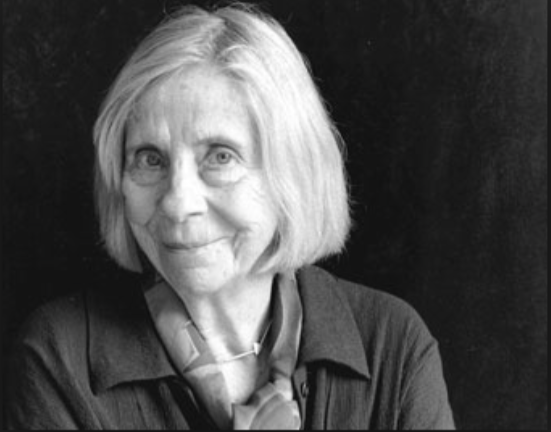6th ANNUAL NAPOMO 30/30/30 :: DAY 29 :: CHARLES GONSALVES on BARBARA GUEST
[box][blockquote]HAPPY POETRY MONTH, FRIENDS AND COMRADES!
For this, the 6th Annual iteration of our beloved Poetry Month 30/30/30 series/tradition, I asked four poets (and previous participants) to guest-curate a week of entries, highlighting folks from their communities and the poets who’ve influenced their work.
I’m happy to introduce Janice Sapigao, Johnny Damm, Phillip Ammonds, and Stephen Ross, who have done an amazing job gathering people for this years series! We’re so excited to share this new crop of tributes with you. Hear more from our four guest editors in the introduction to this year’s series.
Hungry for more? there’s 150 previous entries from past years here! You should also check out Janice’s piece on Nayyirah Waheed, Johnny’s piece on Raymond Roussel, Phillip’s piece on Essex Hemphill, and Stephen’s piece on Ronald Johnson’s Ark, while you’re at it.
This is a peer-to-peer system of collective inspiration! No matriculation required.
Enjoy, and share widely.
– Lynne DeSilva-Johnson, Managing Editor/Series Curator [/blockquote][/box]
[line][line]
[box]
WEEK 4 :: CURATED BY STEPHEN ROSS
The community of poets and scholars convened here for the OS’s National Poetry Month has never existed, as far as I know, in the same geographical or electronic space. Yet I’m moved to see that the members of this new community (excluding the New Yorkers) all hail from the places I’ve lived that mean the most to me: Montreal, the UK Midlands, North Carolina, Georgia. I canvassed old friends and new acquaintances, as well as friends of friends, to contribute to this year’s Poetry Month, and am delighted to find how meaningfully the contributions resonate with each other. These mutually reinforcing energies are not simply a matter of aesthetic and/or political affinities between the poet-scholars and their poets, but emerge from each contributor’s recognition and appreciation of the particulars of their chosen poet.
Contributions by Charles Gonsalves (on Barbara Guest), Sarah Huener (on Eileen Myles), and Aaron Goldsman (on Tommy Pico) span three generations of what some might still be pleased to call the New York School–which generation are we on now? Other contributors attend to the limits of poetics: Klara DuPlessis reflects eloquently on Anne Carson’s (de)creative refusal to finish a book, while Zohar Atkins ponders William Bronk’s endless rewriting of the same poem. Aaron Belz’s tribute to Robert Bly’s translations of César Vallejo speaks to the winding, unpredictable process of poetic influence.
Stephen Ross is a literary scholar, translator, and editor. He earned his PhD in English from the University of Oxford in 2013 and is a founding editor of the literary web-journal, Wave Composition. With Ariel Resnikoff, he is working on the first-full length translation and critical edition of Mikhl Likht’s Yiddish modernist long-poem, Processions. He is a contributing editor for The Operating System’s Unsilenced Texts series, and also co-editor with Dr. Alys Moody of the forthcoming anthology, Global Modernists on Modernism (Bloomsbury, 2017), a 190,000-word sourcebook that draws on a large archive of historical materials — statements, manifestos, letters, prefaces, introductions, hybrid works, etc — by modernist practitioners across the arts, with a special focus on untranslated, poorly disseminated (in English), and ‘forgotten’ texts. His current book project is a study of modern American poetics and objecthood.
[/box]
[line][line]
Day 29 :: CHARLES GONSALVES on BARBARA GUEST :: THE FEELING OF NOT LOOKING FOR ANYTHING AND THEN FINDING IT

The feeling of having not been looking and then finding or losing; of not knowing you had something to say and then hearing speech—and then not knowing if the voice belongs to you, to someone else, or the extent to which a voice can belong. Asking, does it belong more to a from or to a where, a speaker or a listener? Or whensce—when and where does the voice become more memory than event, more echo than origin?
What we are becomes a memory, the hand may open a secret lock.
[line][blockquote]
The poem enters on tiptoe, climbs the terrain,
weary, it listens to minimal sound, the slowed
tree branches are drawn on purpose, part of the same program.
Minimal Sound (The Red Gaze)
[/blockquote][line]
And what are we / is it (thereafter) ? Is it—what we are, after—there? After there, what are we—an is or an it ? Is it what we do—is it poetry? We are what we do, and what we do is poetry. I was in New York City and having a horrible time.
[box]
continue reading this special long-form piece on Barbara Guest at the link below:
Charles Gonsalves on Barbara Guest-The feeling of not looking for anything and then finding it
[/box]
[line] [line]
[textwrap_image align=”left”]http://www.theoperatingsystem.org/wp-content/uploads/2017/04/Screen-Shot-2017-04-28-at-10.30.44-PM.png[/textwrap_image] Charles Gonsalves is a poet and student of literature, philosophy, and history living in Montreal. He has published a few poems on the internet, two of which can be found on the Metatron website, as well personal essays, reviews, and interviews as an editor for Soliloquies Anthology. Originally from Trinidad & Tobago, and having only recently received residency in Canada on humanitarian grounds, he is interested in how identity and citizenship are built, understood, experienced, and written about in critical literatures legal or otherwise.
[line]
[h5]Like what you see? Enter your email below to get updates on events, publications, and original content like this from The Operating System community in the field below.[/h5]
[mailchimp_subscribe list=”list-id-here”]
[line]
[recent_post_thumbs border=”yes”]


